
1 Art
Mandy Kahn creates community poetry installations. For art galleries. At least, that’s the dream. It’s sort of like improv comedy using lines of poetry, only a lot more lyrical.
Al Black used to travel the roads of Florida selling paintings by area African American artists until he became a painter himself. Oxford American and NPR team up to tell his story:
2 News
Times, they are a’changing. Even I-want-to-be-a-part-of-it-New-York-New-York gets no passes. The Bowery Poetry Club joins a long list of East Village literary haunts that have closed their doors in recent years. Not to worry, though. Other East Village poetry venues are alive and well, and even Bowery PC may be back, in partnership with… a burlesque club. Necessity is the mother of strange bedfellows. Or something like that.
This next link is a stretch. It’s not really about poetry at all, but about movies, specifically violence in movies, and the shootings in Aurora. But David Denby raises interesting questions not just about movies but about all art: how much responsibility does an artist bear for the effects of her work? A question all of us who create might do well to ponder.
3 Publishing
As ebooks continue to change the publishing game, a major publisher has jumped in with both feet, hoping to capitalize on the success of self-pubbed authors.
But is it even worth it to write a book? Tech blogger Jeff Atwood says no way. The way he sees it, online content is far superior: it’s searchable, the writer owns it, and it’s available anytime, anywhere (so long as you have an internet connection, of course). He’s talking specifically about tech writing (and good thing, or Jane Friedman might take him on), but I wonder if the same—or at least something similar—holds true for poetry. Write it, post it online, and then later, if you want, turn it into a print book. Any thoughts?
4 Reviews
Emily Dickinson is back. Again. This time she’s the subject of a new book, Emily Dickinson in Love, a sort of literary mystery/love story. Only it’s not a novel. At least, it’s not supposed to be. But reviewer Hillary Kelly all but calls the book fiction. This is one fun read. (Though I’m really, really glad I’m not the author of ED in Love!)
Okay, so this next one isn’t technically a review. It’s a Top Ten list, which is close enough. Austin Allen decided someone needed to make a list of the best poems of the last quarter century. So he did. And he’s taking suggestions for what poems should fill out the rest of the list. Even if you don’t weigh in over on Big Think, I’d love to hear your picks. I’m always looking for good words to read.
5 Creativity
According to Rosamund Harding, creativity occurs most often in the liminal spaces between disciplines. In other words, if you’re a poet, you can boost your creativity by exploring a completely different discipline like, say, astrophysics. The folks at NASA have made a video called “Van Gogh’s Sun” to get you started.
If astrophysics isn’t your thing, perhaps visual art might spark your creativity? Here’s a TED talk in which Tracy Chevalier, author of The Girl With a Pearl Earring, finds the story in three paintings. Be sure to watch the whole thing: she shares a marvelous story at the end.
6 Write-It
Every Monday over at Seedlings in Stone, Tweetspeak managing editor L.L. Barkat invites readers to write “in place.” That is, whatever you’re writing about, evoke a sense of where you are. The place becomes, almost, a character in your writing. This week the folks over at Poets&Writers have a similar prompt: write a poem evoking the feel, mood, and landscape of a place you love (or hate, I suppose). I personally like the added challenge bit: don’t name the place. Let your writing show it so clearly you don’t have to.
Or if you want something a little more, well, concrete, you could join Seth Haines and try your hand at a poem shaped like the thing it’s about. In Love That Dog, Sharon Creech managed to write a poem shaped like a dog. What can you do?
7 Poems
Marjorie Maddox Hafer is yet another reason I love Every Day Poems. Also, Kelly Sauer, whose beautiful photo perfectly captures the mood of Hafer’s poem:
Collecting Angel Wings
Each night they come,
their doily wings catching in the weave of curtains,
fluttering behind the folds like a spring breeze.
Or, they move like the moon through the windowpane,
across chairs, the carpet,
settle like a second blanket on my stomach.
Read the rest of “Collecting Angel Wings” (complete with Kelly’s photo).
I have two friends whose tween daughters are crazy mad about horses. I never went through a horse phase myself; I was too busy solving mysteries with Nancy Drew. When I read “Becoming a Horse” by Ross Gay, I immediately thought of these two girls, both of them at horse camp this week, and I imagined them leaning into their horses, the longing to run and become one. And I thought: what if they did? Now that’d be a good mystery to solve! Hold on, let me get my pumps.
8 People
Fiona Shaw loves words, the harder the better: “I’m not at all frightened of hard words, ” she says. “I just get excited by them.” I would have to agree: I had the privilege of seeing her play Richard II some 15 years ago in London. The British actress is one of the powers behind Peace Camp (part of the Cultural Olympiad), a poetry installation in remote British coastal areas. She’s also taking Coleridge’s “The Rime of the Ancient Mariner” to Greece, of all places. She says she’s not interested in anything old-fashioned, but I think she has a secret mission to make us fall in love with the English language all over again.
Canadian poet Christian Bok has been working on a couple of Petrarchan sonnets for about ten years now. That would seem a bit extreme (I mean, does it really take that long to write 28 lines?) But these poems are…special.
The two poems are part of a project that Bök calls The Xenotext — an attempt to encode a poem into the genome of a bacterium in such a way as to cause the genome to manufacture a protein that encodes yet another poem, mirroring and referring to the first.
You have to check this out. It’s wild. And weird. And way over my head.
9 Education
Grammar and punctuation geeks, rejoice! Mary Norris explains (and sort of eulogizes) the oft-overlooked but oh-so-valuable semicolon.
And here’s something for you poetry geeks: a long, ubergeeky look at different kinds of rhyme. Be still my beating heart.
And if that’s not enough geekspeak for you, you can further geek out by learning the difference between a geek, a nerd, a dweeb, and a dork. Even though I like the term word nerd (it rhymes!), I’m really a geek. Really.
10 Sound n Motion
Last week here at Tweespeak, Angela Alaimo O’Donnell introduced us to the cento, a poem formed of lines from other poems and reminded us that T.S. Eliot’s most famous poem, “The Waste Land, ” is “a big, fat, magnificent Cento.” Here then, is Eliot reading his famous cento:
And if that’s not enough Eliot for you, the folks at Open Culture have another reading, of “The Lovesong of J. Alfred Prufrock, ” complete with a choreographed tag-cloud of the poem. I found the video rather distracting, but to each her own, right?
I hesitated to include the following video, because it’s really an ad for the Shakespeare Sonnet app, but I couldn’t resist: Stephen Fry reciting Sonnet 130? Nope. It had to go in. Enjoy!
Photos by Claire Burge. Used with permission. Post by Kimberlee Conway Ireton, author of The Circle of Seasons: Meeting God in the Church Year
___________
Buy a year of Every Day Poems, just $2.99— Read a poem a day, become a better poet. In July we’re exploring the theme The Cento.
- Top 10 YA and Children’s Books - July 25, 2014
- Literary Birthdays: Dorothy Sayers’ Gaudy Night - June 13, 2014
- Literary Birthdays: C.S. Lewis, Louisa May Alcott, Madeleine L’Engle - November 29, 2013

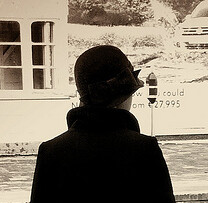
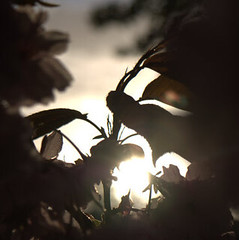


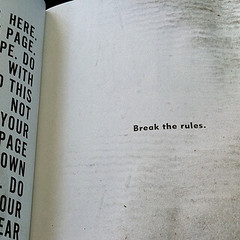
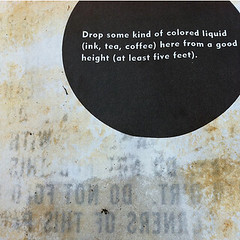




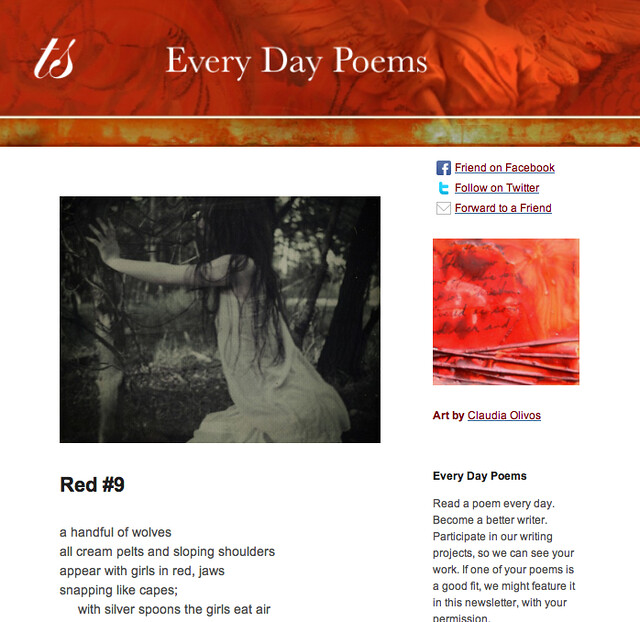
donna says
Just a thought on the online publishing question… this has been a real sticky point for me these days and I have even unpublished my creative writing blog because of it. I am finding, much to my dismay, that many guidelines for pubs (esp contests) only take unpublished work… and they mean any online work including blog, as well as self pub print on demand books (even if there is no ISBN). So, now I am feeling really torn and even sad about it. I liked sharing my stuff… it was a fun playground…not the same when all I feel free to do is CATCH the ball and not throw it back. I think these publishers are being unreasonable- I don’t make the rules but I do I have to follow them. I have accidentally taken myself out of the running to use what I consider some of my best work… am currently in as state of paralysis over it. There are no writing clubs around me that I can find and so online seemed like a good idea… sigh.
So, you asked. Anyone else come up against this? What did you do?
L. L. Barkat says
Donna, I have made my choices. Most journals have a very small readership. Nothing in comparison, for instance, to the audience of 29,000 I can reach through places like Tweetspeak.
So I happily put my work online. I think it’s probably all about what your goals are. I’d rather be read and share my writing life with others.
I think Tania might have more to say about this. Tania? 🙂
donna says
Excellent point about the readership. I am mulling and mulling, and missing the fun of sharing… that alone might be the nudge that says ‘fugghettaboutit’ and have the fun, since the fun is now. Breaking old habits of sacrificing growth and pleasure NOW for future events that may never happen and might not mean that much if they did. I have a tendency to over-think. I imagine Julia Cameron would call this a form of self sabotage, too, now that I think about it. I, for one (of many I know) am thrilled that you do share online. 🙂 Still mulling… and thanking you for your input on this question that’s bugging the heck out of me. I love Tweetspeak and tell people about it every chance I get!
Kimberlee Conway Ireton says
Donna, I just want to second what L.L. said about goals. Only you can know what you’re aiming for. Traditional publication isn’t for everyone. Nor is online sharing. It really depends what your goals are, what you want.
sarah says
I have mixed feelings about this. The conflict between wanting to be read, and wanting to earn money from your writing. Between grasping the new fluidity of the online publishing world and the temptations of traditional publishing – the permanency of one’s work, the idea that someone has your book on their shelf or in their attic, and the sense of validation which old fogeys like me can’t shrug off easily.
What I’ve concluded for me personally is that I want someone to hug a book I have written.
I also feel the online audience seems tempting because its so huge, but in reality its very niche-oriented and self-interested. Someone may read one blogpost of yours but never return. Commenting on blogs seems to be diminishing. So for me it’s not so much about getting read but what kind of audience I want, or rather what I want to do for my audience.
But I think online publishing can be used to benefit a writer. You just have to think of the online writing as supportive to your paper work. I don’t mean blog your second best writing, but blog something different, although in a manner where people can learn your style, your perspective, so they know when you publish a book that they will want to buy it. And on the other hand, blogging also for its own sake – embracing its unique art form, its unique readership, and the special benefits it can offer both writer and reader.
I really think a writer can have the best of both worlds. LL, you certainly have, with your successful online writing and your published books.
Kimberlee Conway Ireton says
Sarah, I have mixed feelings, too. Mostly because, like you, I love the permanency of paper, the cultural artifact-ness of a book that online writing just doesn’t have.
I like what you said about “it’s not so much about getting read but what kind of audience do I want, or rather what I want to do for my audience.” Yes. I’ve been pondering those questions of late myself. Thank you for articulating them for me so clearly.
donna says
There is something, for me, in having someone say “YES. We want to publish YOUR BOOK” (and they are not my mother or best friend)… I have never heard those words, but one day I will. I want that. I want someone, as in choosing sides for basketball, to pick me. The best I can come up with for myself is to keep my blog because it helps me sort things out, and it seems to be helpful or at least intersting to other people who have lyme, (not to mention it does give that taste of validation to see that it interests others). So, like Sarah said, don’t blog your second best writing… just blog it, and maybe it can be the ‘kernel’ for a future piece if the core of the piece can go further (and can’t they all?). Isn’t it then the rough draft? The “study” (if it were a painting?). I don’t know the answers to these things. I guess I’ll find out as I go.
donna says
I’ve been really thinking a lot about this and how to balance it all. Truth is I like sharing. It’s fun! It’s necessary! I especially enjoy the two way streets, which is why I don’t even feel right reading everyone else’s work without putting myself out there, too. So I have decided to share what I want to… just for the pure joy of it. Life is too short to save “it” all for later! Where’s the joy in having a spoonful of ice cream if you never raise it to your mouth?
I also learned that publishers guidelines are not always as rigid as they appear. I wrote a note to a publisher asking if work that is self published or on a blog would still be considered and he surprised me by saying yes, depending on readership and the piece (so asked to please send the link where it appears). That just goes to show that when in doubt… ask.
So, I really appreciate and value the great feedback, sharing, and openness here. This was SUCH a valuable ‘conversation’ for me….
Maureen Doallas says
That Sonnet app has become a bestseller; it’s been getting a huge amount of attention.
Some really good stuff here.
Lane Arnold says
http://lanearnold.co/remnants Your words reminded me to write of place from my week.
Kimberlee Conway Ireton says
Lane, Thanks for putting words to what’s going on in your corner of Colorado. I especially liked the line “They weep hope.”
Lane Arnold says
I think writing poetry is another way of lectio divina in the middle of the everydayness of life: amid fires and disasters, God is every present. It is part of the Attentive Life of which Leighton Ford writes. Here, in ordinary time, which you address invitingly in your Circle of Seasons, and in ordinary and extraordinary moments, we see the green of growth, the first shoots that reappear after a fire. Those shoots are green hope, aren’t they?
sarah says
Regarding Emily Dickinson – very interesting premise behind that book. However, it’s only the latest in a long line of theories I’ve encountered about her. My favourite was from a uni lecturer who insisted Emily was in a secret lesbian relationship! My own theory, based on a whole bunch of stuff, is that she was a sexual abuse victim – which doesn’t of course discount any other theories added on top. I wish we could one day know for sure, it seems like she wanted so much to communicate her heart, but that we can’t quite hear her.